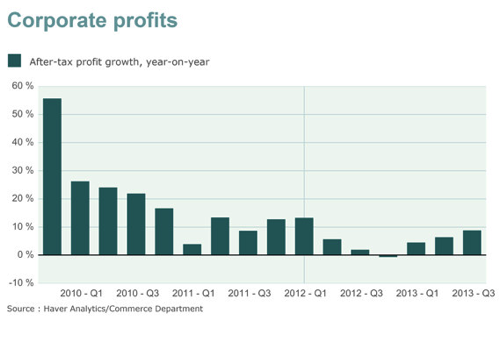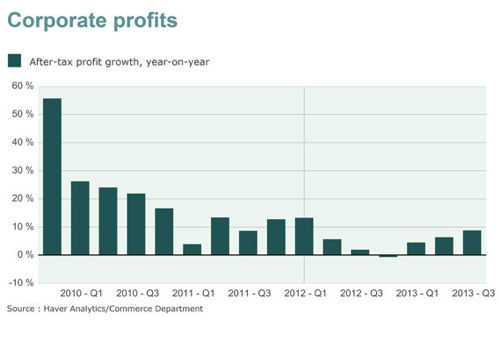Paul Krugman: Secular Stagnation Arithmetic:
The key point is NOT to focus on events since crisis struck; this is not a case of taking a business-cycle slump and imagining that it will last forever. Instead, the argument is that the sources of demand during the good years-the Great Moderation from 1985-2007–are not going to be available even when the aftereffects of crisis have faded away…. Underneath the apparent stability of the Great Moderation… debt… rising by around 2 percent of GDP annually; that’s not going to happen in future… a reduction in demand… of around 2 percent of GDP….
Slowdown in the rate of growth of potential output, mainly… demography… perhaps… slowing productivity…. CBO thinks… 1 percentage point…. The [investment] ‘accelerator’… is somewhat above 2[:]… a 1 percentage point drop in potential growth would reduce investment spending by 2 percent of GDP…. We seem to be depressing aggregate demand by 4 percentage points….
Now, this effect can be offset to some degree by reducing interest rates. But can this be enough?… The average real rate during the GM years was 1.9 percent… hard to avoid the conclusion that the average real rate looking forward will have to be negative. If inflation stays relatively low, e.g. 2 percent, this would mean an economy that often, perhaps usually, finds itself in a liquidity trap…

 Steve Goldstein:
Steve Goldstein: 